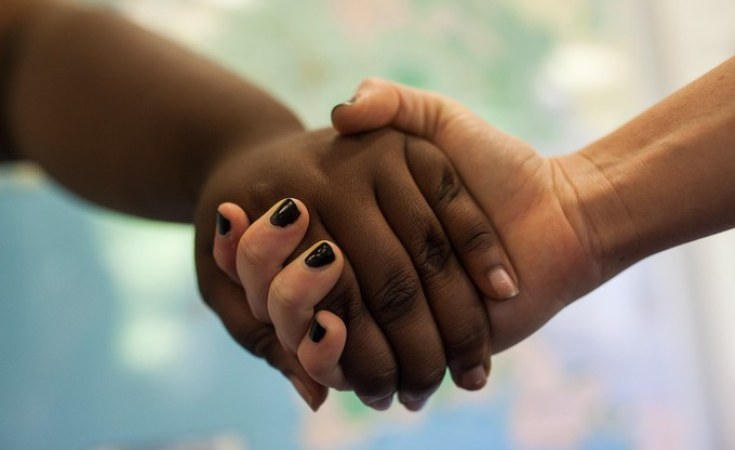Abuja, Nigeria — Nigerian activist Promise Ohiri, known as Empress Cookie, woke up to cheering news on Tuesday.
Pope Francis had given Catholic priests permission to give blessings to same-sex couples in a landmark declaration.
Ohiri, a Catholic transgender woman, has faced serious discrimination and threats to her life related to her sexuality. She said she couldn't have hoped for better news, but acknowledged there would be resistance.
"It's not going to be an easy thing," she said. "I'm very sure that African people will definitely protest against it. They mostly use religion against us, the queer people. I feel like the pope making the decision is ... I feel like it's for good for queer people. I'm having a good reaction [feeling] about it."
Other African activists also praised Francis' decision to let Catholic priests bless same-sex couples, with hopes that the pope's gesture could ease anti-LGBTQ sentiment and oppression on the continent.
But African religious organizations are not expected to embrace the Vatican's announcement. In Nigeria, at least one bishop has voiced dismay about it.
Not a wedding
The Vatican said the blessing would not be similar to a wedding ceremony, which it maintained can happen only between a man and a woman.
The Vatican stated that homosexuality is "intrinsically disordered" but argued that same-sex couples must be treated with dignity and respect.
But the announcement has sparked debates in Africa, where homosexuality is widely viewed as a sin, an abomination or a Western import.
In Nigeria, same-sex relations are punishable by 14-year jail term.
Ohiri is hopeful the pope's declaration will change things.
"The pope doing this is shocking the whole world and breaking foundations," she said. "I mean, laws that are so much against the queer people. If the religion is in support of queer people -- trust me, it's going to shake the Nigerian law and other countries that have not signed it into law. It's really normal for them to protest."
Bishop John Promise Daniel, vice president of the Pentecostal Fellowship of Nigeria, said same-sex blessings and marriage are not acceptable.
"I am more or less, like, shocked when I heard what the pope said," Daniel said. "There's nobody who can change the position of the word of God, whether you are a pope, an archbishop or whatever. If [the Bible] does not support it, I don't care who supports it. It's invalid. Man's liberality is inconsequential."
The Catholic Church of Nigeria has yet to respond to the pope's statement. But experts predict that the church's officials may disagree and continue with a different doctrine on the matter.
Mike Umoh, spokesperson of the Catholic Secretariat of Nigeria, told VOA by phone, "I can tell you that the Catholic bishops of Nigeria are presently working on their position that will very, very soon be made public."
This week, a Ugandan court commenced hearing a suit challenging the East African country's harsh anti-LGBTQ law, which punishes "aggravated homosexuality" with a life sentence.
Activists like Ohiri say they are skeptical that Nigeria's laws against homosexuality will be overturned, but they the pope's declaration is a step in the right direction.


